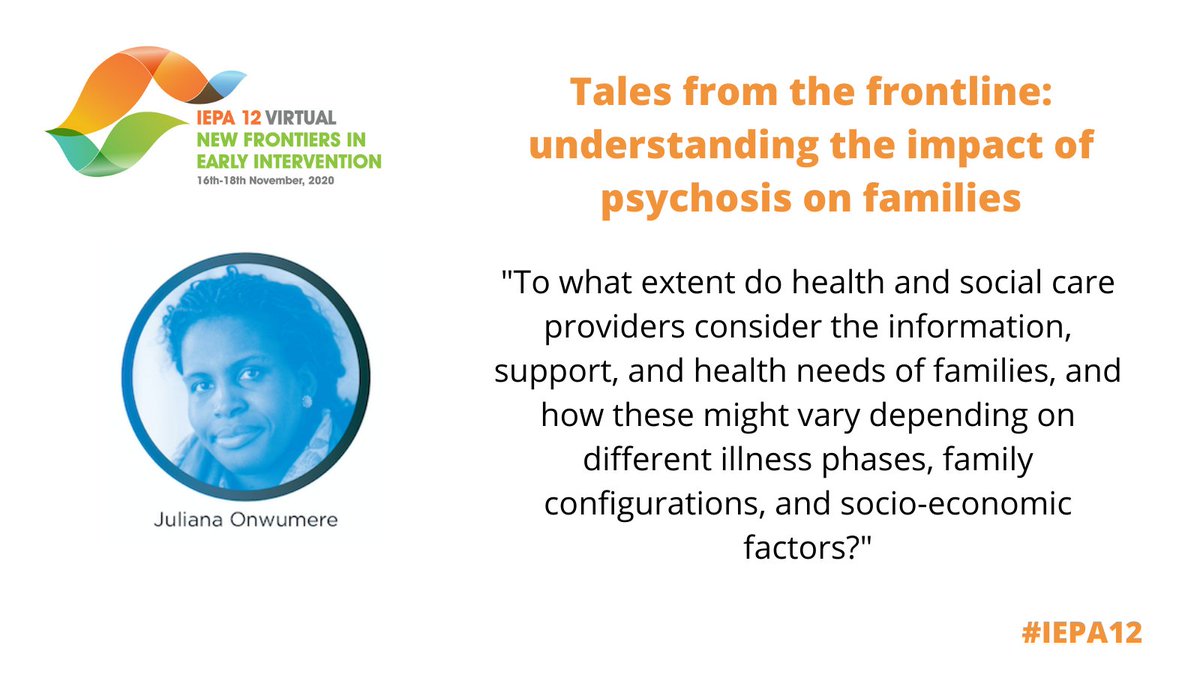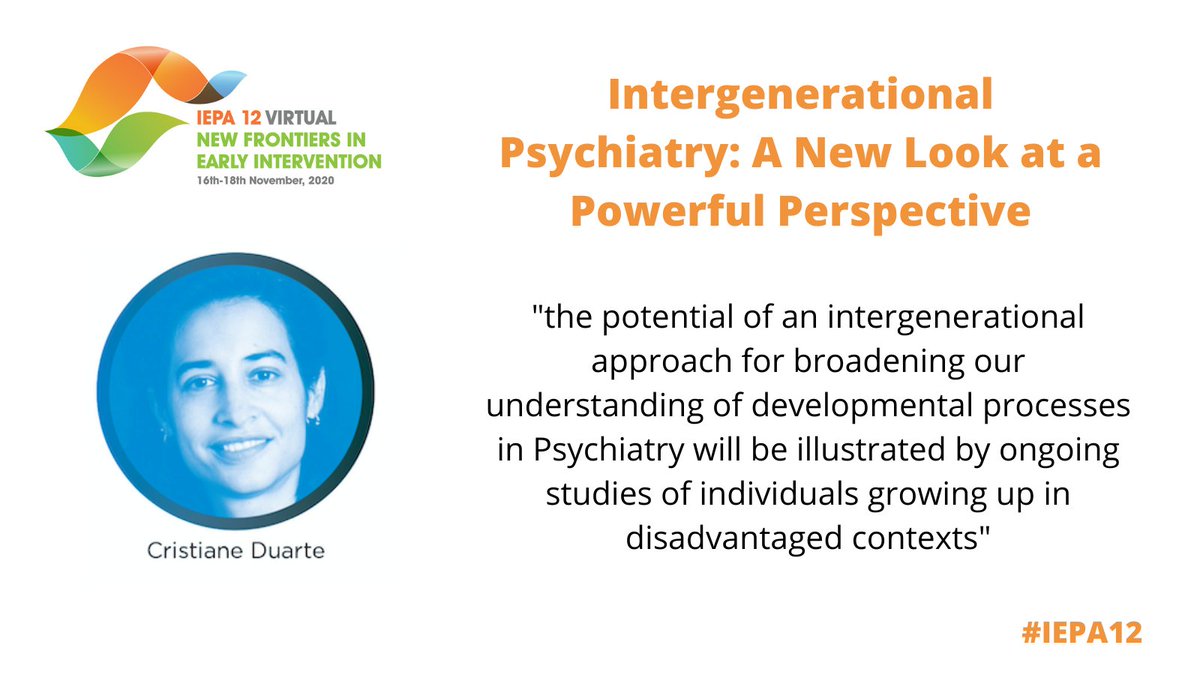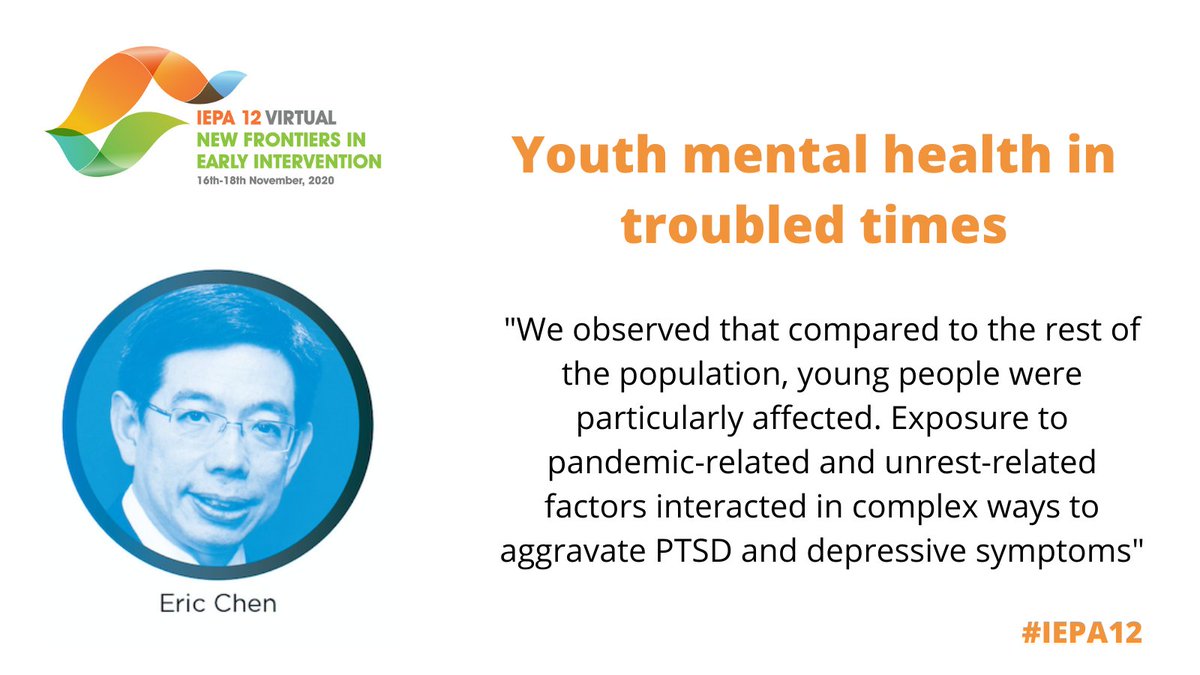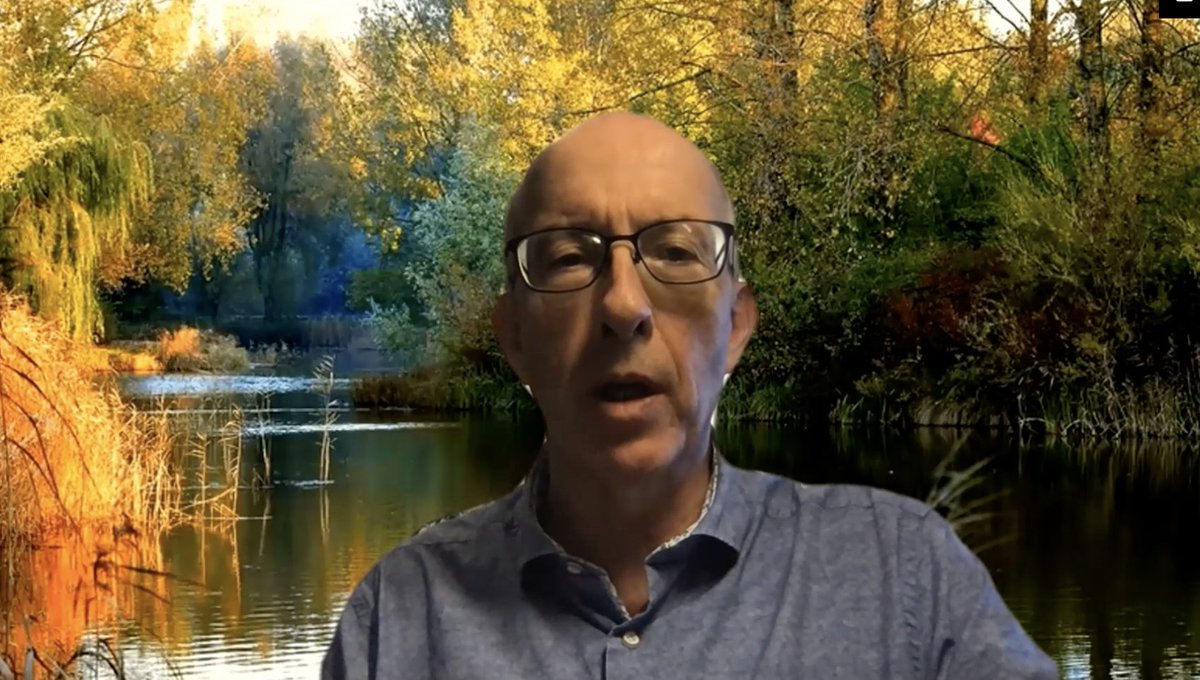
Our next speaker is Louise Arseneault @L_Arseneault from King’s College London who will be talking about Early intervention for developing positive social relationships: can we prevent bullying victimization and loneliness? #IEPA12 

The absence of social relationships, or problematic ones may lead to mental health problems, says Arseneault. At the same time, positive social relationships can protect our health and wellbeing. They are important malleable factors that can be target by interventions. #IEPA12
Transition periods in the human life course (starting school, relationships, jobs and retirement) are potentially tricky times, says Arseneault #IEPA12 
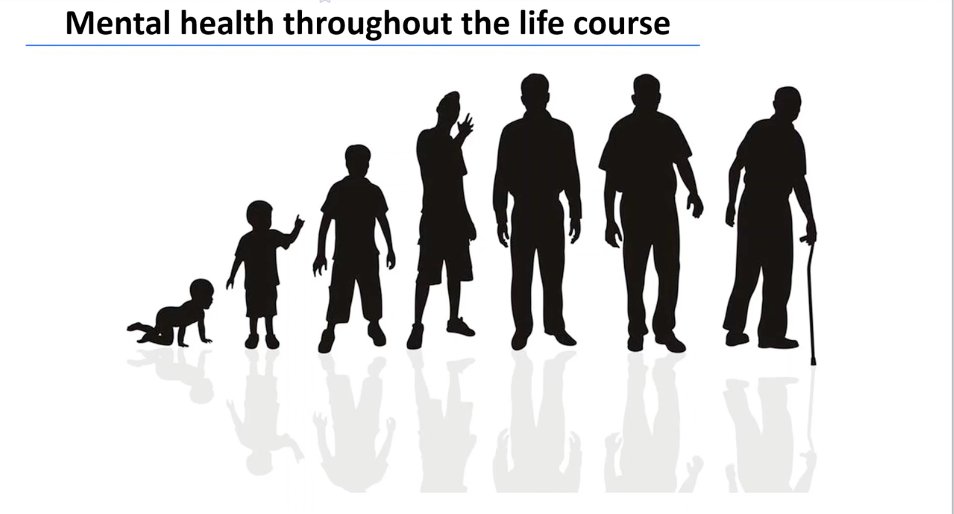
75% of all mental health problems start before the age of 18, and 3 children in any UK classroom have a mental health diagnosis, so it’s vital that we focus on mental health and wellbeing in young people (as young as possible) #IEPA12 
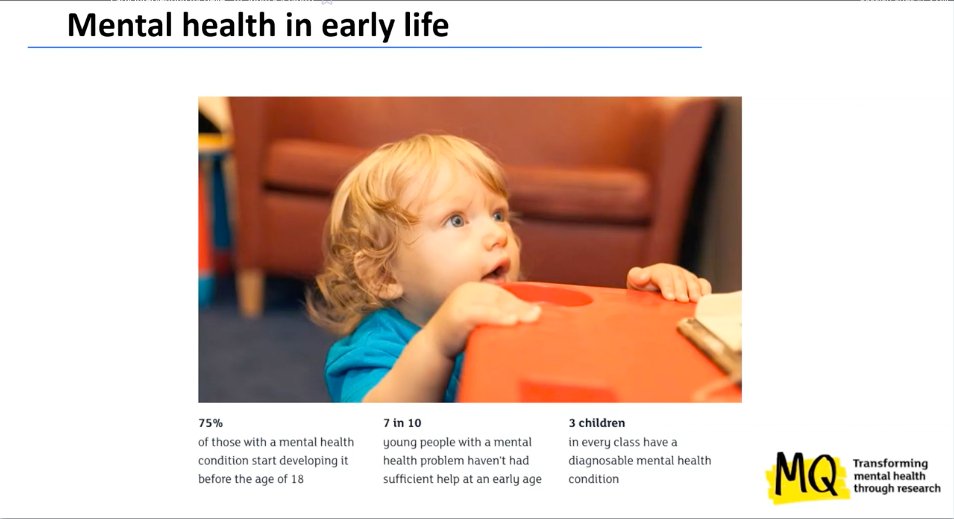
Bullying victimization is repeated abuse between people of the same age where an imbalance in power makes it difficult for victims to defend themselves. It often happens at school, but can happen in the local neighbourhood or online #IEPA12
Such behaviours were commonly accepted a few decades ago, but recent evidence suggest that bullying can lead to emotional problems during childhood #IEPA12
“Being bullied at a young age is an environmentally mediated contributing factor to children's internalizing problems” #IEPA12 
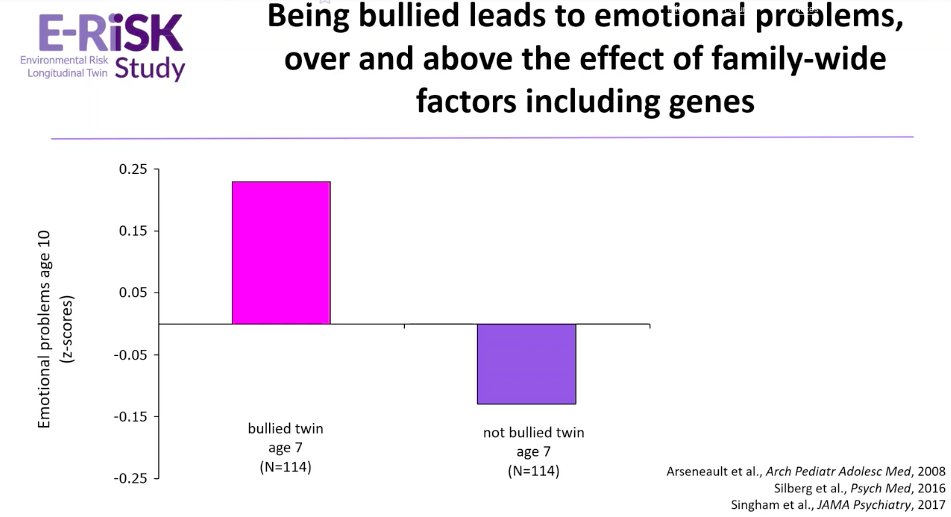
These findings have been replicated from two recent studies in the UK and the USA, says Arseneault #IEPA12
Bullying is a tractable problem, argues @Tamsin_J_Ford in her Mental Elf blog on @L_Arseneault’s 2017 bullying review in @TheJCPP. If we prevent bullying we prevent some mental illness in young people nationalelfservice.net/populations-an… #IEPA12
Now Arseneault is highlighting the incredible contribution that Dan Olweus made to bullying research. He passed away very recently and Louise is thinking of him as she presents these findings. Here they are in conversation back in 2018 #IEPA12
soundcloud.com/national-elf-s…
soundcloud.com/national-elf-s…
What can we do to help individuals who have mental health problems that persist even after the bullying has stopped? Early intervention in young victims must be really important, argues Arseneault #IEPA12
The 1958 British Cohort Study provided data for Arseneault’s work (since replicated), which shows that being bullied as a child is associated with mental health problems at age 45. Takizawa (2014) doi.org/10.1176/appi.a… #IEPA12 
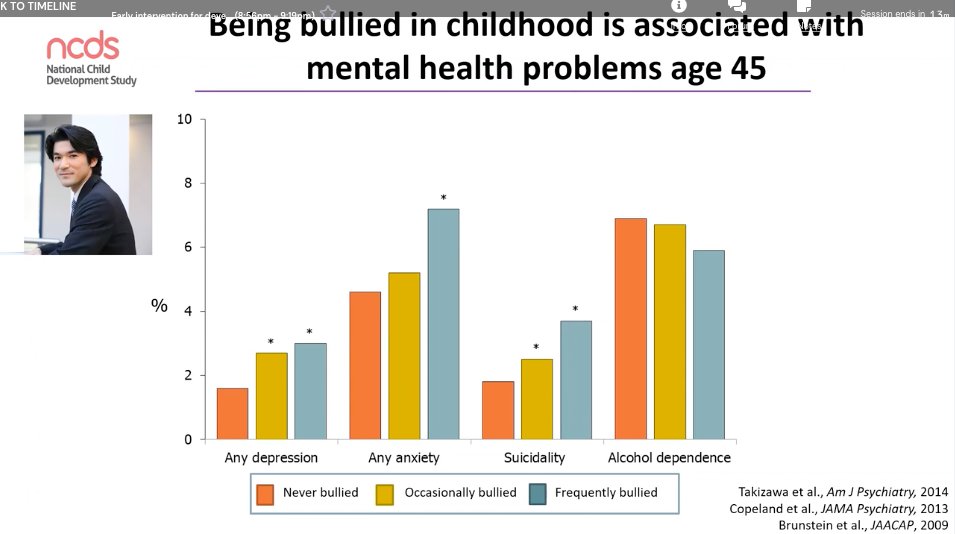
People with depression, anxiety, and suicidality were over-represented among participants who were frequently bullied. These associations are present after controlling for social factors, says Arseneault. #IEPA12
Simple bullying interventions may help prevent mental illness from developing, says Arseneault, e.g. schools and families acknowledging the impact of being bullied. Sometimes, more targeted mental health interventions may be needed for the victims of bullying. #IEPA12
Family relationships are a vital part of early interventions that can promote resilience in young people. The eRisk study found that maternal warmth and sibling warmth protects children from the impact of being bullied @DrLucyBowes doi.org/10.1111/j.1469… #IEPA12
Similar findings are suggested for siblings warmth, says Arsenault. #IEPA12 
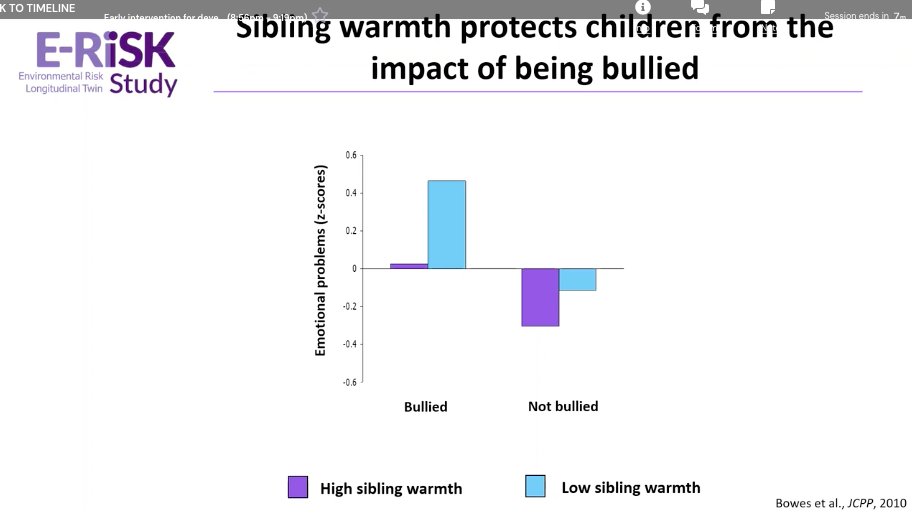
Now Arseneault is moving on to talk about loneliness - the feeling that one’s desired quality and quantity of social connections are not being fulfilled (social isolation is something else - the absence of positive social relationships) #IEPA12
Loneliness is a predictor of illness and mortality that’s as bad for us as obesity or smoking. Young people (18-34) are most affected by loneliness. #IEPA12
Feeling lonely in young adulthood is associated with poor social relationships in childhood @t_matth (2018) doi.org/10.1017/S00332… #IEPA12 
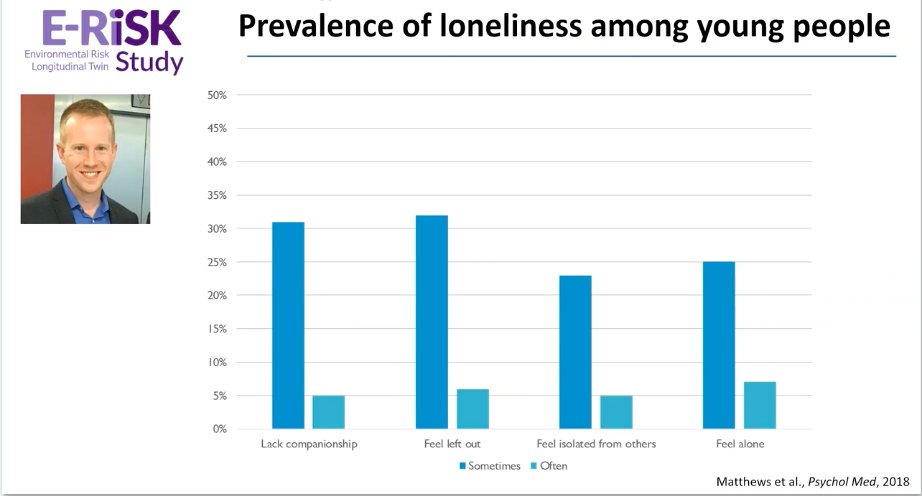
Loneliness contributes to various mental health difficulties even after adjustment for factors (see green bars), adds Arsenault. #IEPA12 

We have lots of great research blogs about #loneliness and #mentalhealth on the Mental Elf if you want to read more about this emerging area of research nationalelfservice.net/tag/loneliness/ #IEPA12
Feeling lonely in young adulthood is predicted by poor social relationships, says @L_Arseneault #IEPA12
It’s essential that we intervene early to prevent loneliness in children and young adults, says Arseneault, i.e. preventing bullying and the subsequent isolation that can occur #IEPA12
@L_Arseneault #IEPA12
-Negative social relationships are assoc w/poor mental health outcomes
-Evidence indicates factors predicting bullying victimization in young people & feelings of loneliness in young adulthood
-Qs remain as to how to prevent negative social relationships
-Negative social relationships are assoc w/poor mental health outcomes
-Evidence indicates factors predicting bullying victimization in young people & feelings of loneliness in young adulthood
-Qs remain as to how to prevent negative social relationships
Great keynote from @L_Arseneault at #IEPA12. If you want to hear more about bullying and mental health, listen to this podcast we recorded a couple of years ago with Louise
soundcloud.com/national-elf-s…
soundcloud.com/national-elf-s…
Moving on now to a live Q&A with @L_Arseneault 🌟
Stay tuned, it's certainly going to be very interesting. #IEPA12
Stay tuned, it's certainly going to be very interesting. #IEPA12
Let's start - What's the impact of COVID-19 on loneliness among YP and what's the impact of pre-COVID-19 loneliness on bullying?
#IEPA12
#IEPA12
Arsenault says, there are many studies emerging on loneliness and COVID-19 lockdown, but we need to remember that there is a huge difference between loneliness and the 'social isolation' we all have to follow. #IEPA12
We didn't see the rise of loneliness we would expect during the circumstances, adds Arseneault. Explanations about this may include the sense of connectedness and belonging we all felt as society, fighting the virus together. #IEPA12
Next Q on instruments about bullying. "In our research", @L_Arseneault says, "we only use ONE question: has your kid been bullied? However, there are plenty of established questionnaires on bullying regarding frequency and overall experience." #IEPA12
Q on theory of mind and social cognition - is this associated with loneliness and bullying? Arseneault suggest that their research indicated that although at the beginning there was an association with loneliness, after controlling factors, the effect was weak. #IEPA12
However, this was associated with bullying behaviours #IEPA12
@L_Arseneault closes her Q&A "We should equip children who are vulnerable to bullying with the skills to escape experiences of bullying and build meaningful social relationships." #IEPA12
• • •
Missing some Tweet in this thread? You can try to
force a refresh





